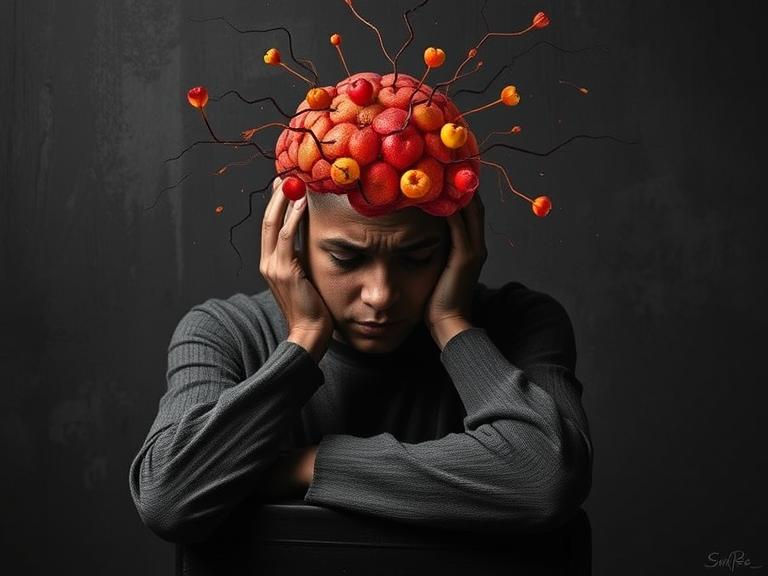A Guide to Causes, Symptoms, and Treatment
Panic attacks are sudden, intense surges of fear, panic, or anxiety. They often occur without warning and can be overwhelming. If you’ve ever experienced one, you know how frightening it can be. Even though they aren’t physically harmful, panic attacks can significantly impact a person’s mental and emotional well-being.
In this blog, we will explore what panic attacks are, what causes them, how they affect mental health, and what steps you can take to manage or treat them effectively.
What Is a Panic Attack?
A panic attack is an episode of extreme anxiety. It typically peaks within 10 minutes and includes symptoms like a racing heart, shortness of breath, chest pain, dizziness, and an overwhelming sense of dread. Some people feel like they’re losing control, or worse, dying.
Although the symptoms are intense, a panic attack itself is not life-threatening. However, it can feel so real that people often rush to the emergency room thinking they’re having a heart attack.
Difference Between Anxiety and Panic Attacks
While both involve fear and discomfort, there are key differences:
- Anxiety builds gradually and is often triggered by specific stressors.
- Panic attacks are sudden and may not have an obvious cause.
Additionally, panic attacks tend to be more intense and come with physical symptoms that mimic serious medical conditions.
Common Symptoms of a Panic Attack
Panic attacks can manifest in various ways. Some of the most common symptoms include:
- Rapid heart rate or palpitations
- Sweating or chills
- Trembling or shaking
- Shortness of breath or a choking feeling
- Nausea or stomach cramps
- Chest pain or discomfort
- Dizziness or feeling faint
- Numbness or tingling sensations
- Fear of losing control or going crazy
- Feeling detached from reality (derealization)
What Causes Panic Attacks?
There is no single cause. In many cases, a combination of biological, psychological, and environmental factors contribute. Some possible causes include:
- Genetics: A family history of anxiety or panic disorders
- Major stress: Death of a loved one, job loss, or trauma
- Brain chemistry: Imbalances in neurotransmitters like serotonin
- Personality: More common in people with high stress sensitivity
- Substance use: Caffeine, drugs, or withdrawal from medication
Sometimes, panic attacks can occur without any clear trigger. This unpredictability adds to the anxiety surrounding them.
How Panic Attacks Affect Mental Health
Panic attacks can take a toll on your mental health. They often lead to a fear of having another attack, which in turn can trigger more anxiety. This creates a vicious cycle.
Some people develop Panic Disorder, a type of anxiety disorder characterized by frequent panic attacks and ongoing fear. Left untreated, this can lead to avoidance behaviors, where people stay away from certain places or activities out of fear of triggering an attack.
Diagnosing Panic Attacks
Diagnosis usually involves:
- A clinical interview
- Reviewing medical history
- Ruling out physical causes (like heart problems or thyroid issues)
- Psychological assessment based on DSM-5 criteria
It’s important to consult a healthcare provider for a proper diagnosis, especially if symptoms are recurring or severe.
Treatment Options for Panic Attacks
There is no one-size-fits-all treatment, but several effective approaches exist:
1. Cognitive Behavioral Therapy (CBT)
CBT is one of the most effective therapies. It helps people understand the patterns behind their panic and replace negative thoughts with healthier ones.
2. Medication
Doctors may prescribe:
- SSRIs (e.g., sertraline or fluoxetine)
- Benzodiazepines (for short-term relief)
- Beta-blockers to manage physical symptoms
Always consult your doctor before starting any medication.
3. Mindfulness and Relaxation Techniques
Deep breathing, progressive muscle relaxation, and meditation help reduce overall anxiety and prevent panic attacks.
4. Lifestyle Changes
A healthy lifestyle supports mental wellness. Tips include:
- Regular exercise
- Balanced diet
- Limiting caffeine and alcohol
- Adequate sleep
- Stress management techniques like journaling or yoga
How to Help Someone Having a Panic Attack
If someone is having a panic attack:
- Stay calm
- Reassure them: “This will pass”
- Encourage slow, deep breathing
- Stay with them until it ends
- Avoid saying “calm down” or minimizing their feelings
When to Seek Professional Help
While occasional panic attacks can be managed, frequent or debilitating episodes require professional help. Consult a mental health provider if:
- Attacks are happening regularly
- Fear of future attacks is affecting daily life
- You’re avoiding people, places, or activities
- You feel hopeless, depressed, or suicidal
Final Thoughts
Panic attacks are distressing but treatable. With the right support and strategies, most people learn to manage their symptoms and lead fulfilling lives. If you or someone you know is struggling, don’t hesitate to reach out for professional help. Mental health is just as important as physical health—your wellness matters.
🔍 Frequently Asked Questions (FAQs)
1. What is the main cause of panic attacks?
There isn’t one specific cause; genetics, brain chemistry, and stress all play a role.
2. How long does a panic attack last?
Most panic attacks peak in 10–15 minutes and resolve within 30 minutes.
3. Can panic attacks be cured?
While not always “cured,” they can be effectively managed with therapy and medication.
4. Are panic attacks dangerous?
They are not physically dangerous but can feel overwhelming and scary.
5. Can children experience panic attacks?
Yes, panic attacks can occur at any age, including childhood.
6. Are panic attacks a form of anxiety?
Yes, they are closely related and often occur as part of anxiety disorders.
7. Do breathing exercises help?
Yes, deep breathing is a proven method to manage and reduce panic symptoms.
8. Can caffeine trigger panic attacks?
In some people, high doses of caffeine can increase anxiety and trigger attacks.
9. How is panic disorder different from a panic attack?
Panic disorder is a diagnosis involving frequent panic attacks and fear of them.
10. Can panic attacks happen during sleep?
Yes, nocturnal panic attacks can wake individuals from deep sleep.
11. Is medication always required?
Not always—many manage through therapy and lifestyle changes alone.
12. Can I drive during a panic attack?
It’s unsafe. If you feel one coming on, pull over and wait until it passes.
13. Can panic attacks mimic a heart attack?
Yes, symptoms can be very similar, which often leads people to the ER.
14. Are panic attacks linked to trauma?
Yes, trauma or PTSD can be a contributing factor.
15. Can you prevent panic attacks?
You can reduce the likelihood with proper treatment and stress management.
16. Will they go away on their own?
Sometimes, but recurring attacks need treatment to prevent worsening.
17. Can yoga help with panic attacks?
Yes, yoga promotes relaxation and stress relief, which can help prevent attacks.
18. Should I avoid crowded places if I have panic attacks?
Only if advised by a doctor; exposure therapy can actually help in treatment.
19. Are panic attacks more common in women?
Yes, women are statistically more likely to experience them.
20. Who should I contact for help?
A licensed mental health professional, psychologist, or psychiatrist.





